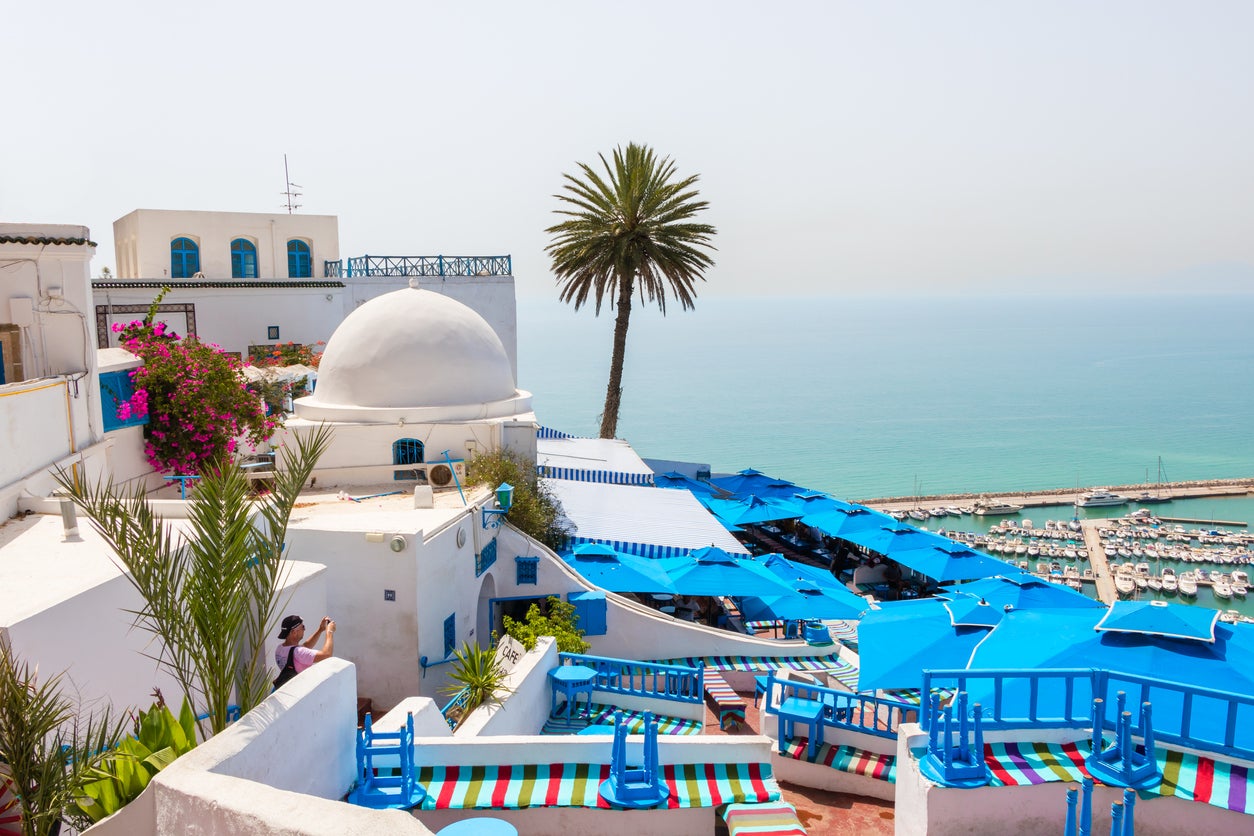Your support helps us to tell the story
From reproductive rights to climate change to Big Tech, The Independent is on the ground when the story is developing. Whether it's investigating the financials of Elon Musk's pro-Trump PAC or producing our latest documentary, 'The A Word', which shines a light on the American women fighting for reproductive rights, we know how important it is to parse out the facts from the messaging.
At such a critical moment in US history, we need reporters on the ground. Your donation allows us to keep sending journalists to speak to both sides of the story.
The Independent is trusted by Americans across the entire political spectrum. And unlike many other quality news outlets, we choose not to lock Americans out of our reporting and analysis with paywalls. We believe quality journalism should be available to everyone, paid for by those who can afford it.
Your support makes all the difference.Tunisia has added the UK to its coronavirus “red” list and introduced new travel restrictions in response to the increasing number of cases in the UK.
As of 28 September, travellers from the UK will only be allowed into the African country if they hold Tunisian citizenship or if they are a permanent resident of Tunisia.
British travellers who do not fall into the two categories will not be permitted entry to the country.
In addition, travellers from the UK must take a Covid-19 PCR test 72 hours before travel to show that they have tested negative for coronavirus. This will need to be shown when you arrive in Tunisia, with the date of the test clearly labelled according to the Foreign Office (FCDO).
Once in Tunisia, travellers will be placed into compulsory quarantine for 14 days, the first seven of which will be in a quarantine centre. The cost of the stay at the quarantine centre will need to be met by the traveller.
A second PCR test would need to be taken after five to seven days and, if negative, you can then complete the quarantine at home.
The FCDO currently advises against non-essential travel to Tunisia, as it does for the whole continent of Africa.
It comes just days after the Caribbean island of Barbados announced similar travel restrictions for UK travellers from 1 October.
The Barbados Ministry of Tourism said: “The United Kingdom will be categorised as a high-risk country in accordance with the country risk assessments.
“As such, persons travelling from or transiting through the UK will be required to follow the protocols under the high-risk category.”
The new categorisation means that as well as having a mandatory PCR test before travel, UK travellers must quarantine inside the grounds of pre-approved accommodation where, four or five days after your PCR test in the UK, you have to take a second test. If this comes back negative, you’ll then be able to explore the rest of the island.


Join our commenting forum
Join thought-provoking conversations, follow other Independent readers and see their replies
Comments